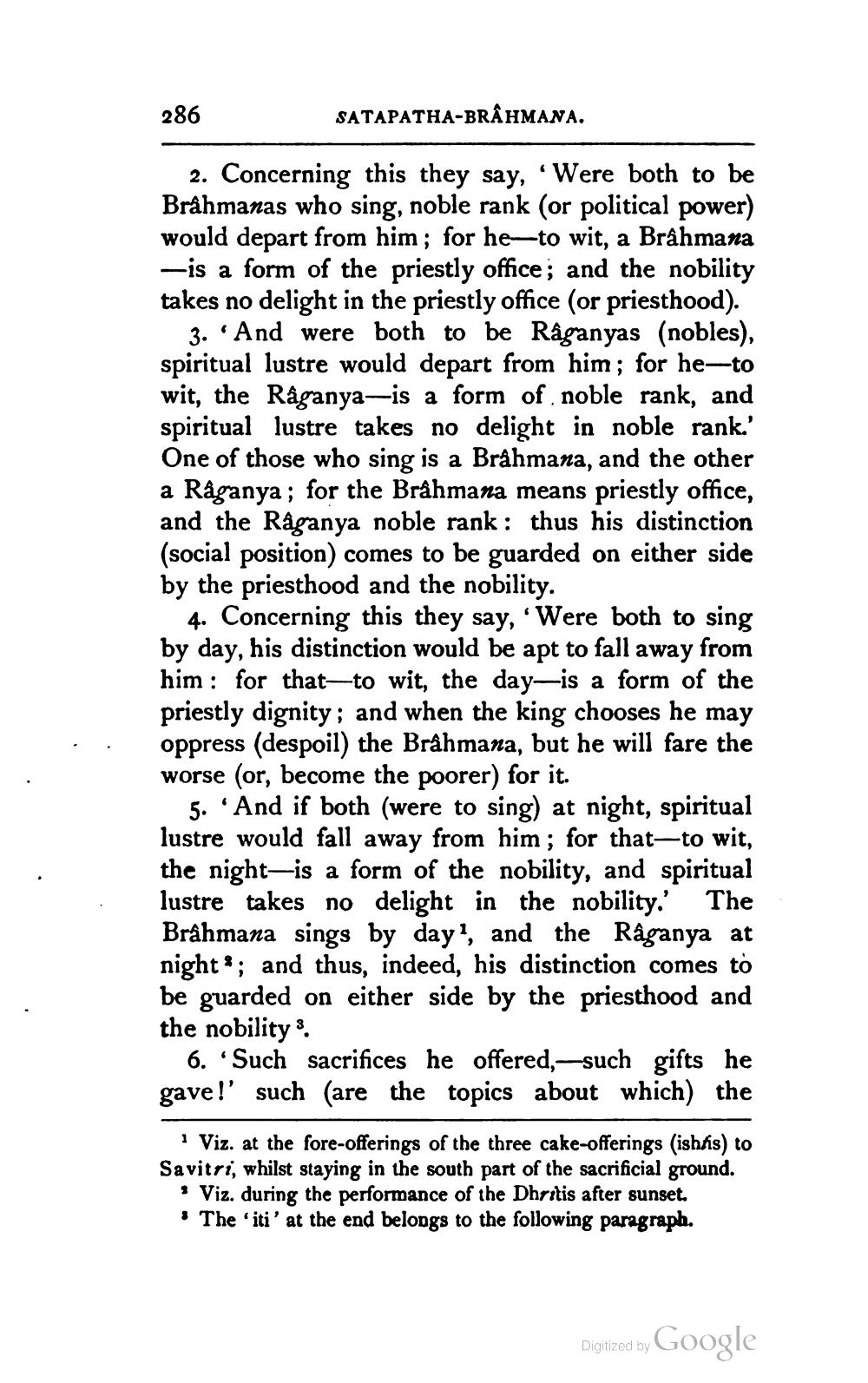________________
286
SATAPATHA-BRAHMANA.
2. Concerning this they say, “Were both to be Bråhmanas who sing, noble rank (or political power) would depart from him; for hemto wit, a Brâhmana -is a form of the priestly office; and the nobility takes no delight in the priestly office (or priesthood).
3. And were both to be Raganyas (nobles), spiritual lustre would depart from him; for he-to wit, the Råganya-is a form of noble rank, and spiritual lustre takes no delight in noble rank.' One of those who sing is a Brahmana, and the other a Råganya; for the Brahmana means priestly office, and the Râganya noble rank: thus his distinction (social position) comes to be guarded on either side by the priesthood and the nobility.
4. Concerning this they say, 'Were both to sing by day, his distinction would be apt to fall away from him: for that-to wit, the day—is a form of the priestly dignity; and when the king chooses he may oppress (despoil) the Bråhmana, but he will fare the worse (or, become the poorer) for it.
5. And if both (were to sing) at night, spiritual lustre would fall away from him; for that—to wit, the night-is a form of the nobility, and spiritual lustre takes no delight in the nobility. The Brahmana sings by day!, and the Râganya at night*; and thus, indeed, his distinction comes to be guarded on either side by the priesthood and the nobility
6. Such sacrifices he offered,-such gifts he gave!' such are the topics about which) the
Viz. at the fore-offerings of the three cake-offerings (ishtis) to Savitri, whilst staying in the south part of the sacrificial ground.
• Viz. during the performance of the Dhritis after sunset. • The 'iti' at the end belongs to the following paragraph.
Digitized by Google




